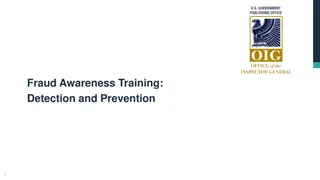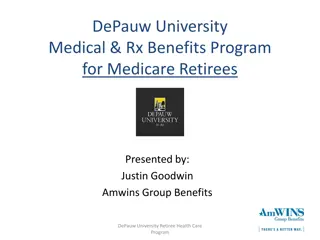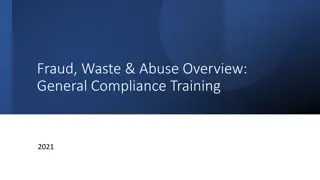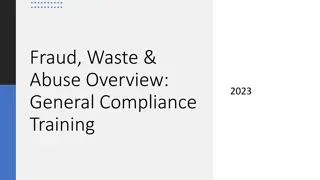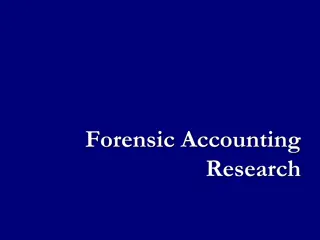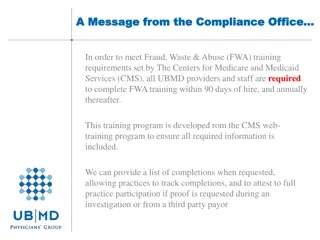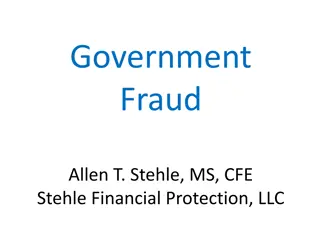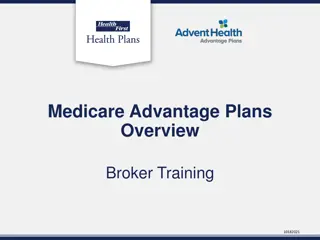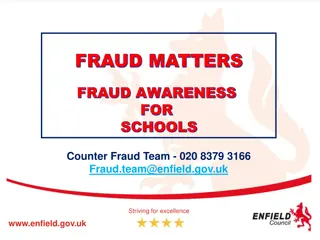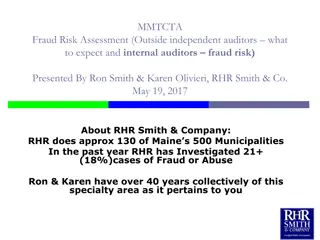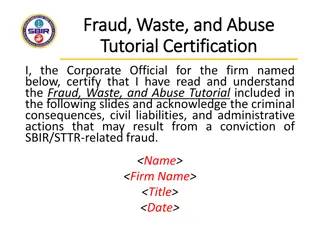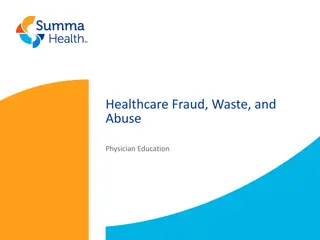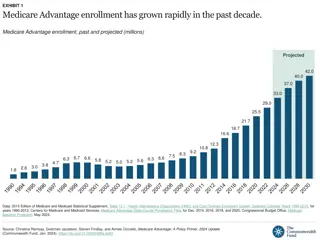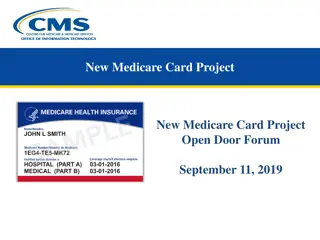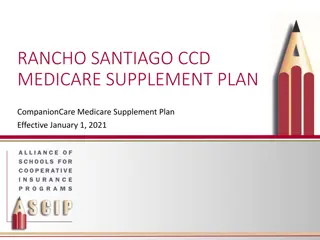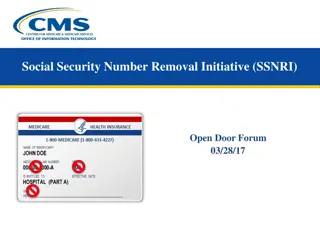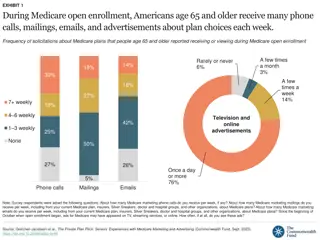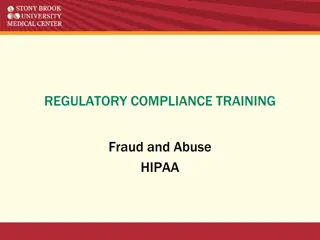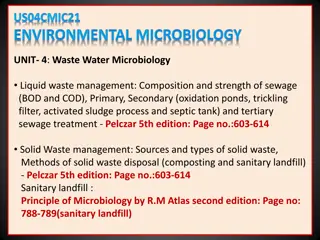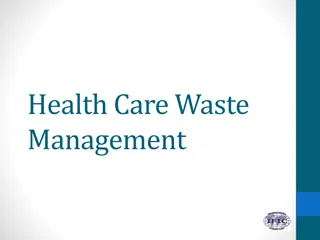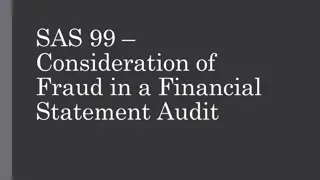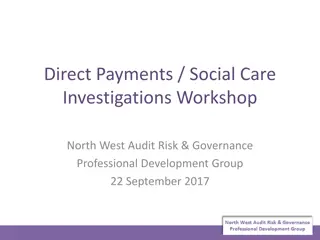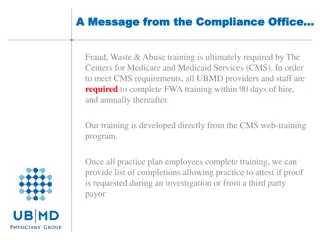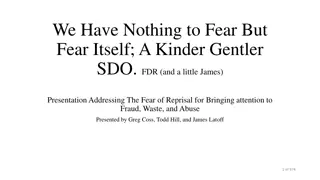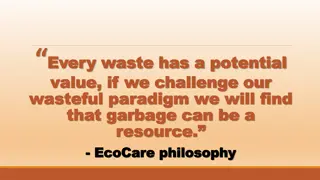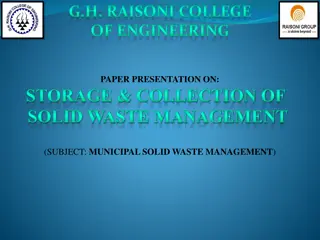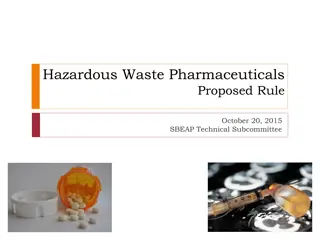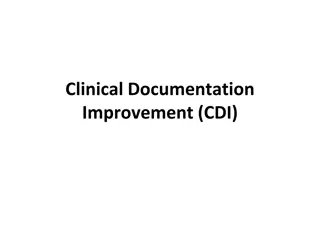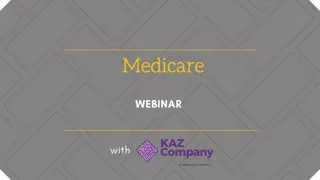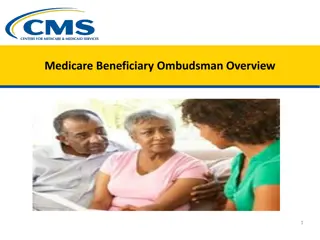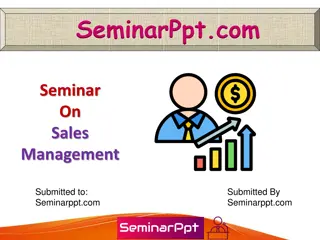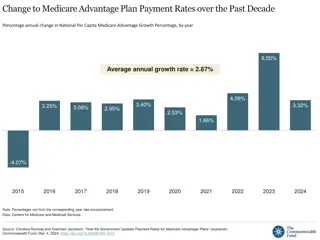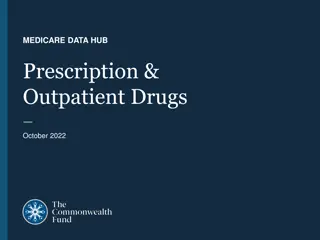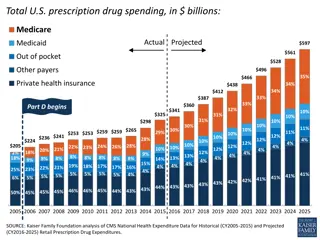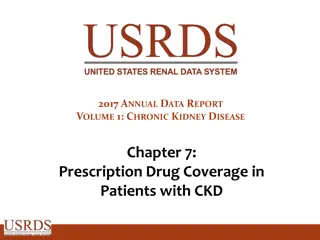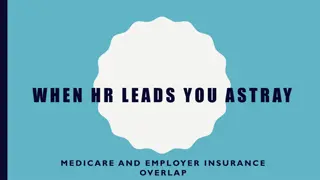Understanding Medicare Fraud, Waste & Abuse in Sales Activities
This training provides education on Medicare fraud, waste, and abuse related to sales activities for sales staff and agents/brokers. It explains the differences among fraud, waste, and abuse, explores examples of sales FWA such as marketing schemes, and emphasizes the importance of intent and knowledge in these actions. Recognizing and preventing FWA is crucial in maintaining the integrity of healthcare benefit programs.
Uploaded on Oct 05, 2024 | 0 Views
Download Presentation

Please find below an Image/Link to download the presentation.
The content on the website is provided AS IS for your information and personal use only. It may not be sold, licensed, or shared on other websites without obtaining consent from the author. Download presentation by click this link. If you encounter any issues during the download, it is possible that the publisher has removed the file from their server.
E N D
Presentation Transcript
Medicare Fraud, Waste & Abuse (FWA) Education Related to Sales Activities December 2016
The purpose of this training is to provide fraud, waste, and abuse education specifically related to Sales activities for the sales staff and agents/brokers.
Fraud is knowingly and willfully executing, or attempting to execute, a scheme to defraud any health care benefit program, or to obtain by means of false or fraudulent pretenses, representations, or promises, any of the money or property owned by, or under the custody or control of, any health care benefit program. Waste includes over using services, or other practices that, directly or indirectly, result in unnecessary costs to the Medicare Program. Waste is generally not considered to be cause by criminally negligent actions, but rather by the misuse of recourses. Abuse includes actions that may, directly or indirectly, result in unnecessary costs to the Medicare Program. Abuse involves payment for items or services when there is not legal entitlement to that payment and the provider has not knowingly and/or intentionally misrepresented facts to obtain payment.
There are differences among fraud, waste, and abuse. One of the primary differences is intent and knowledge. Fraud requires intent to obtain payment and the knowledge that the actions are wrong. Waste and abuse may involve obtaining an improper payment or creating an unnecessary cost to the Medicare Program, but does not require the same intent and knowledge.
Examples of Sales FWA: Marketing Schemes
Enrollment of a consumer in a Medicare Plan without the consumers knowledge or consent. Offering consumers a cash payment or other reward as encouragement to enroll in a Medicare, Medicaid, or healthcare benefit plan. Selling or marketing insurance without a license. Using consumer information supplied through a third-part(e.g., another agent, friend, etc.) to market Medicare plans. Agents splitting commissions or agent referral fees. Misrepresenting themselves as a representative of the government (Medicare, Social Security, Federal Government.)
If a sales agent/broker intentionally misrepresents a product being marketed, with the goal of getting the beneficiary to enroll, this is considered fraud. An example would be omitting information about a comparative Medicare product to induct a beneficiary to purchase their insurance. Sales agents/brokers enrolling beneficiaries solely interested in a Medicare Part D Plan into a Medicare Advantage Plan without their knowledge and/or understanding. If a sales agent/broker offers a beneficiary a kickback as an inducement to enroll.
Forging a beneficiary signature or knowingly accepting a forged signature on an enrollment form. Utilizing beneficiary data to facilitate any enrollment without the beneficiaries knowledge, regardless of if a commission was paid or not. Misuse of Scope of Appointment (SOA) form or knowingly circumnavigating the rules concerning SOA. Improper entertainment or incentives offered by sales agents.
All agents/brokers selling Medicare products must be trained and tested annually on Medicare rules, regulations and on details specific to the plan products that they sell. Agents training and testing must take place prior to the agent/broker selling the product and the agent must obtain a passing score of at least 85% on the test. Agents/brokers selling Medicare products must maintain a valid license. Beneficiaries enrolled in a plan by an unqualified agent (e.g., unlicensed, not appointed, or has not completed the annual training/testing) must be notified of the agents /broker s status and may request to make a plan change.
One-on-One appointments with Medicare beneficiaries, regardless of the venue, must follow the Scope of Appointment (SOA) guidance. Agents cannot discuss plan options that were NOT agreed to by the beneficiary. Agents cannot market non-health care related products (such as annuities or life insurance). Agents cannot ask the beneficiary for referrals.
Nominal gift value must be $15 or less based on fair market value. Nominal gifts may NOT be in the form of cash or other monetary rebates. Must be offered to all people regardless of enrollment and without discrimination. Cannot be considered a health benefit (e.g., free checkup) or be tied to any other covered item or service. Plans cannot provide or subsidize a meal at a sales event.
Plans must obtain an enrollees opt-in authorization prior to using or disclosing the enrollee s protected health information (PHI) for marketing purposes. The authorization must include all types of information for which authorization is being sought. Compliance with the HIPAA privacy and security rules require greater protection of information from and/or about enrollees.
Look for suspicious activity; Conduct yourself in an ethical manner; Comply with all applicable laws, regulations and CMS requirements; Report suspected FWA. Ensure all beneficiary documents are held in a secure and confidential manner.
Penalties for violating laws and regulations that prohibit FWA may include: Civil monetary penalties Civil prosecution; Criminal conviction/fines; Exclusion from participation in all Federal health care programs; Imprisonment; or Loss of provider license.
SWHP/ICSW Compliance & FWA Hotline: Phone: 1-888-800-1096 (can submit anonymously) SWHP/ICSW Compliance Officer: MaryAnn McLean Phone: 254-298-3118 Email: MaryAnn.McLean@BSWHealth.org BSWH Chief Compliance Officer: Robert Michalski Phone: 1-214-820-8888 Email: Robert.Michalski@BSWHealth.org
CMS Hotline: Phone: 1-800-MEDICARE (1-800-633-4227) or TTY: 1-877-486-2048 Office of the Inspector General (OIG): Phone: 1-800-HHS-TIPS (1-800-447-8477) or TTY: 1-800-377-4950 Fax: 1-800-223-8164 Email: HHSTips@oig.hhs.gov Online: https://forms.oig.hhs.gov/hotlineoperations Mail: U.S. Department of Health & Human Services Office of Inspector General Attn: OIG Hotline Operations P. O. Box 23489 Washington, DC 20026 Department of Justice (DOJ): https://www.stopmedicarefraud.gov


